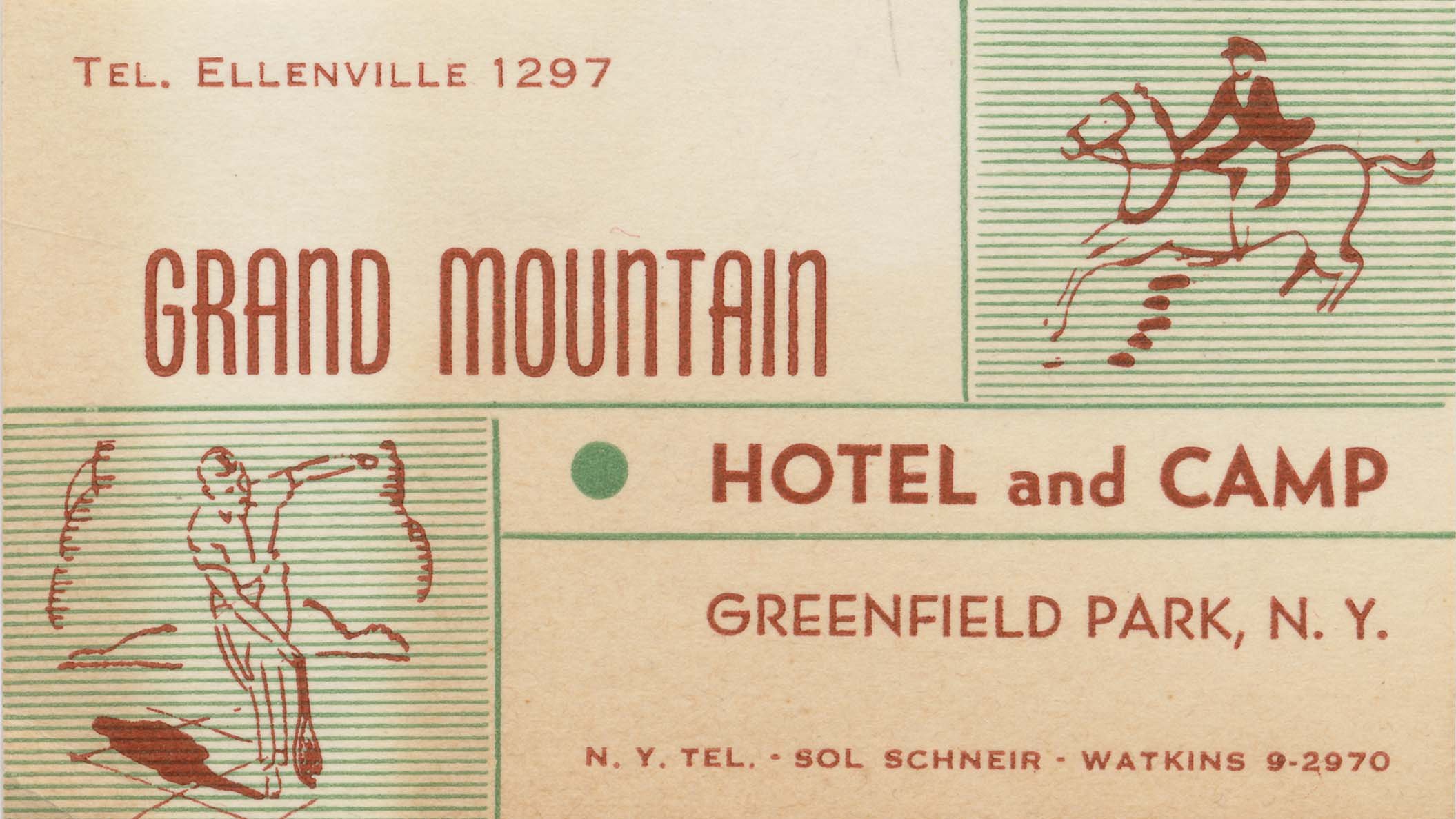CONTACT US
If you have any questions, comments or would like to get involved in the museum, make a contribution or donate an item to the archive, please contact us via email or send a message using the contact form below.
Email: info@borschtbeltmuseum.org
Phone: 845-879-3561
Below are some answers to frequently asked questions about donating items to the museum.
FAQs
-
If you believe that you have material that might be of interest to the museum, please contact us. Describe what you have as clearly and specifically as possible. Please do not bring or send any donations of material to the Museum without first contacting our staff.
-
We are interested in collecting the following types of material that document the Borscht Belt: brochures, pamphlets, postcards, and original photographs. In addition, negatives, film, videotapes, and audiotapes are valuable in documenting the history of the era.
-
Donations may be tax deductible. Please consult your tax advisor and refer to IRS publications 526 and 561, and form 8283.
-
Unfortunately we are not able to make appraisals; however, we may be able to provide you with some additional historical information if you require it.
-
Unfortunately, we don't have the resources to process and house material that does not belong to the museum.
-
We do not have the funds to purchase items for our collection. Instead, we rely upon the generosity of the public to donate archival material that supports the museum’s mission of chronicling the history of the Borscht Belt.
-
Shortly after receiving your donation, we will send you two copies of a Deed of Gift for your signature. After you sign, date, and return both copies to us, we will return an executed copy for your records.
-
Copyright refers to ownership of the contents of a document rather than ownership of the physical item itself. Thus, copyright resides with the creator of the document unless they have legally transferred it to another person or institution. When you sign the Deed of Gift, you will be transferring any copyrights you hold to the Archives. This transfer of copyright is important in terms of making the documents fully available to researchers.
-
In rare cases, especially if the material is located in the greater New York City area, Hudson Valley or Catskill region, a museum volunteer or staff member may be able to review the items in situ. In most cases, however, we will not be able to review the material in person. A detailed description of the material in your collection will be instrumental in helping us make an assessment.





